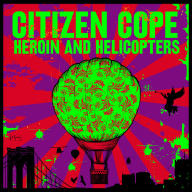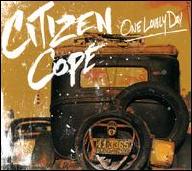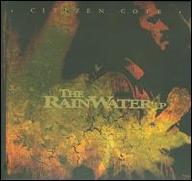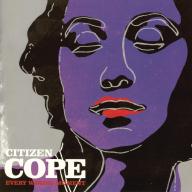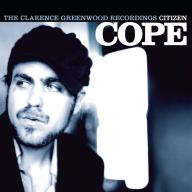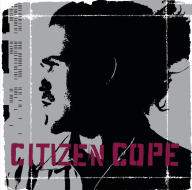Born in Memphis and raised in Washington, D.C., Greenwood first broke into the music business by appearing on albums by Maryland-based rapper Basehead (1993's Not in Kansas Anymore and 1996's Faith), and he used that momentum to issue his first Citizen Cope album, Cope Citizen, in 1992. Greenwood spent the rest of the decade donating songs to several independently issued compilations -- including 1997's Settling the DC Score and 1999's Anti-Racist Action Benefit -- and appearing on the soundtracks to movies like Eat Me and Clubland. He also performed on Lazy K's 1997 album Life in One Day before inking his own deal with Capitol Records. Over the coming years, Greenwood would be plagued by a series of label switches that would ultimately cause him, to form his own imprint. Although he recorded an entire album, Shotguns, during his time with Capitol, the label never released the record and he was eventually released from his contract. Dreamworks then took the opportunity to sign him in 2000, and Citizen Cope's self-titled second album was eventually released in 2002, yielding one of his signature songs in "Let the Drummer Kick." The bad luck continued, however, as Greenwood felt that the label mishandled his record. Using an advance from Arista, he bought his way out of the Dreamworks contract and settled into a partnership with his new label. Ironically, after a shakeup at Arista, it was RCA who finally got The Clarence Greenwood Recordings onto shelves in September 2004. Like much of Greenwood's work, its success was slow but steady (it was eventually certified Gold in 2019), though it did receive considerable attention at the time thanks to the Carlos Santana-assisted standout "Son's Gonna Rise." Citizen Cope remained with RCA for the release of 2006's Every Waking Moment, but by this point Greenwood had grown tired of the boundaries presented by any record label. Having hit the front half of the Billboard 200 with his previous major-label outing, 2010's independently released The Rainwater LP performed beyond expectations, peaking at number 111 on the same chart thanks to an ever-expanding fan base eager for more of Cope's fusion of blues, folk-pop, and socially conscious hip-hop. Two years later, a mellower, more laid-back sound characterized 2012's One Lovely Day which became his highest-charting LP to date, reaching number 36.
After a prolonged absence, Citizen Cope returned in March 2019 with Heroin and Helicopters, an album which drew on themes of unity and positivity. 2021's The Pull of Niagara Falls offered stripped-down acoustic versions of songs originally written for Greenwood's still-unreleased late-'90s album, Shotguns, along with newly written material. ~ Greg Prato, Rovi



